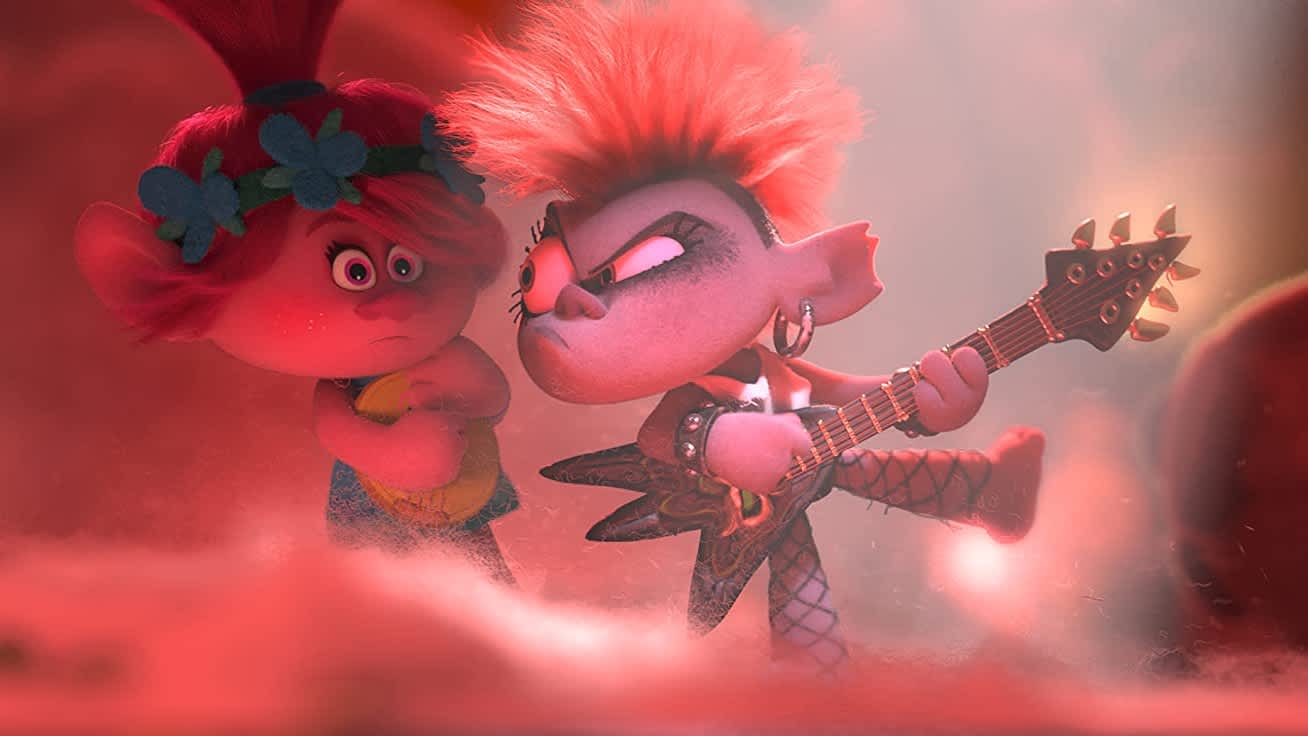
Frame from “Trolls World Tour”.
Universal
The dispute between AMC Theaters and Universal Pictures, which started with the release of the video-on-demand for “Trolls: World Tour” in March, ended.
On Tuesday, the two companies announced an agreement for AMC to show Universal movies on the big screen once again and give Universal a smaller theatrical window so it can make its titles available on demand sooner.
As part of the deal, Universal and Focus Features must play movies in theaters for at least three weekends, or 17 days, before releasing those movies on premium video-on-demand platforms. Previously, theaters would have exclusive movie rights for 90 days.
“AMC will also share these new revenue streams that will reach the movie ecosystem from premium video on demand,” said Adam Aron, CEO of AMC, in a statement.
Neither company disclosed the full terms of the agreement, declaring it confidential.
“The theater experience continues to be the cornerstone of our business,” Donna Langley, president of Universal Filmed Entertainment Group, said in a statement Tuesday. “The partnership we have forged with AMC is driven by our collective desire to ensure a prosperous future for the film distribution ecosystem and to meet consumer demand with flexibility and optionality.”
The dispute between AMC and Universal began in March. Due to growing concern about the coronavirus pandemic, Universal released “Trolls: World Tour” in theaters and on-demand the same day.
On April 10, “Trolls World Tour” was available as a digital rental for $ 19.99. With most cinemas closed, with the exception of some entrance venues, the film was primarily viewed on demand.
Three weeks later, NBCUniversal CEO Jeff Shell touted the film’s digital success, which had amassed nearly $ 100 million in rentals, and suggested that the company would do more simultaneous releases in the future.
While this figure was less than the $ 153.7 million that the first “Trolls” movie grossed at the national box office, the revenue Universal has secured was nearly the same for the two films because digital sales take less than a percentage of the earnings from studies.
Theater owners will generally take about half of a movie’s gross total, while 80% of the digital rental fee goes directly to the studio.
Exhibitors were already antagonized by the initial simultaneous release of “Trolls”, prompting AMC to announce that it would no longer display the Universal movie list at its more than 1,000 locations.
After the prolonged closings of theaters in the US, the result of the increase in coronavirus cases and the constant momentum of Hollywood blockbusters since the release schedule, AMC’s stance has softened and was able to reach an agreement with Universal.
“AMC enthusiastically embraces this new industry model both because we are participating in the entire economy of the new structure, and because premium video-on-demand creates the added potential for increased profitability of the film studio, which in turn Maybe it should lead to the green lighting of more theatrical movies, “said Aron.
Disclosure: Comcast is the parent company of NBCUniversal and CNBC.
.